In the intricate tapestry of global politics, few narratives are as compelling and consequential as the political journey of Vladimir Putin. As we edge closer to 2024, speculation about Putin’s potential bid for re-election offers a fascinating glimpse into Russia’s political future, encapsulating themes of power, continuity, and change within the world’s largest country by land area. Putin’s tenure, already historic for its length and impact, stands at a crossroads that could define Russia’s trajectory for years to come.

Putin’s Political Landscape
Since ascending to power at the turn of the millennium, Vladimir Putin has been a dominant figure in Russian politics, steering the country through tumultuous times with a firm hand. His leadership has been characterized by significant economic reforms, a strong emphasis on national security, and a assertive foreign policy stance that has frequently put Russia at odds with Western powers. Under his watch, Russia has reasserted its position as a global power, albeit amid growing concerns over governance, human rights, and democratic freedoms.

The prospect of Putin’s 2024 bid is set against a backdrop of complex internal and external challenges. Domestically, Russia faces economic uncertainties, demographic shifts, and rising demands for political transparency and accountability. Internationally, the geopolitical landscape is fraught with tensions, from sanctions and diplomatic confrontations to regional conflicts that test Russia’s influence and resolve.
The Significance of 2024
The year 2024 is pivotal for several reasons. It not only marks the end of Putin’s current term but also a moment for Russia to reflect on its path forward. The constitution, amended in 2020, allows Putin the option to run for two more six-year terms, potentially extending his presidency until 2036. This amendment, passed through a national referendum, sparked debates about the future of Russian democracy and governance, highlighting the dichotomy between stability and stagnation.
Putin’s decision, whether to seek re-election or endorse a successor, will significantly impact Russia’s political landscape. A bid for re-election would signal continuity, reinforcing Putin’s vision for Russia while raising questions about political renewal and succession. Conversely, opting not to run could open the political arena to new figures and ideas, marking a potential shift in Russia’s direction and leadership style.
Implications for Governance and Democracy
Putin’s potential bid carries profound implications for governance and democracy in Russia. A continuation of his presidency would likely perpetuate current policies and governance models, emphasizing state control, national sovereignty, and a cautious approach to economic and political reforms. Critics argue that this could further entrench authoritarian tendencies, limiting political pluralism and civic freedoms.
However, Putin’s leadership is also credited with bringing stability and a sense of predictability to Russian politics, qualities that some citizens and political elites view as essential in a volatile global context. The debate over Putin’s 2024 bid thus reflects broader conversations about the trade-offs between stability and democratic governance.
Russia’s Place on the Global Stage
Beyond domestic considerations, Putin’s future political moves have significant implications for international relations. Under his leadership, Russia has pursued an assertive foreign policy, seeking to challenge Western dominance and carve out a sphere of influence, particularly in Eastern Europe, the Middle East, and Asia.
A continuation of Putin’s presidency would likely mean more of the same on the international front, with Russia actively seeking to expand its global reach and influence. This could have ramifications for international security, trade, and diplomacy, especially in areas where Russian and Western interests collide.
The Path Forward: Scenarios and Speculations
As speculation mounts, several scenarios emerge regarding Putin’s 2024 bid and Russia’s political future. Each scenario carries its own set of possibilities and challenges:
- Continuity with Putin: A re-election bid would reinforce Putin’s grip on power, emphasizing stability and continuity. However, it could also lead to increased domestic and international pressure for reform and change.
- The Succession Plan: Should Putin decide not to run, the endorsement of a successor would open a new chapter in Russian politics. The chosen successor’s ability to maintain cohesion among political elites and navigate Russia’s challenges would be crucial.
- The Unpredictable Element: In Russian politics, unforeseen factors can dramatically alter the landscape. Economic shifts, societal movements, or international developments could influence the calculus for 2024, introducing new dynamics into the political equation.
Conclusion

Vladimir Putin’s potential bid for re-election in 2024 is more than a political decision; it is a symbol of Russia’s search for identity and direction in the 21st century. Whether through continuity or change, the outcome will have lasting implications for governance, democracy, and Russia’s role in the world. As the speculation continues, one thing is clear: the path chosen will not only shape Putin’s legacy but also the future of Russia itself.
Visit Unicorn Blogger for more articles & Blogs !



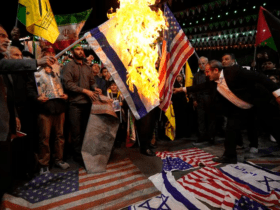
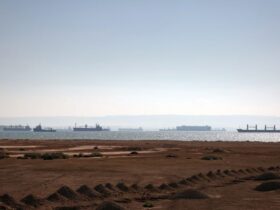


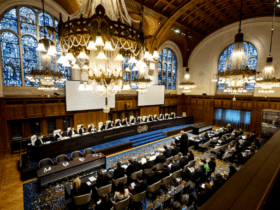










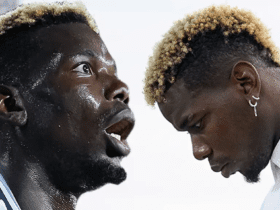


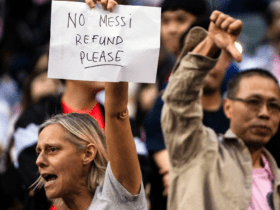





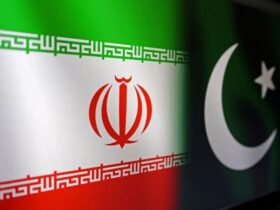
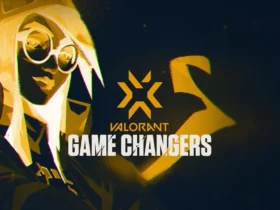
Leave a Reply